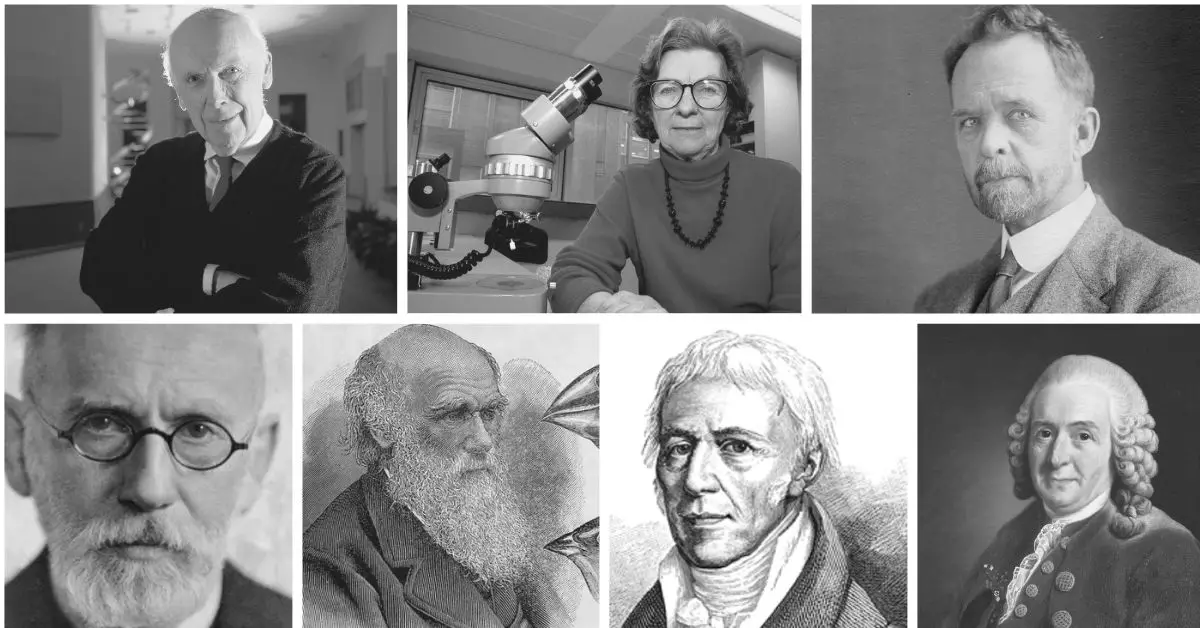To celebrate scientists and scientific advancements, we have collected a list of the most famous biology scientists that will inspire us for the greater good.
If you want to learn where some of the brightest minds in biology started their careers. Keep reading.
Did you know that Charles Darwin was considered a failure when he went to college? Or that Gregor Mendel was remembered mostly for his gardening skills when he was alive?
These notable biologists didn’t always have the best beginnings, but they made a name for themselves with their ideas and findings. We’ve gathered basic facts about famous biology scientists from history so you can find inspiration from them.
Here are the famous scientists who made headway in biological sciences.
Table of Contents
Famous Biology Scientists
#38. Charles Darwin (1809-1882): The Father of Evolution

What makes Charles Darwin famous?
Charles Darwin was an English biologist, naturalist, and geologist who contributed significantly to evolutionary biology through his theory of natural selection.
This theory states that individuals best suited to survive and reproduce will pass on their genes to future generations, while those less fit will not succeed as well as others. The result is that certain traits become more common over time because of this process of natural selection.
Darwin believed that all living things originated from one ancestor. He also wrote On the Origin of Species, which became one of the most influential books ever written on evolution—and it still is today.
[Source: Encyclopedia Britannica]
#37. Galen (AD 129-AD 216): The Greek Scientist Whose Ideas Influenced Science

What makes Galen famous?
Galen was a Greek physician in the Roman Empire who is best known for his contributions to pathology, pharmacology, physiology, neurology, and anatomy. He used animals such as pigs and apes to understand the human body.
Galen’s work influenced medicine for centuries after his death. However, many of his beliefs about how the body works were incorrect or incomplete.
We can see this in the theory of humor: he believed one’s health depended on keeping four humors in balance—blood, phlegm, yellow bile, and black bile.
[Source: Encyclopedia Britannica]
#36. Andrea Vesalius (1514-1564): The Father of Modern Human Anatomy
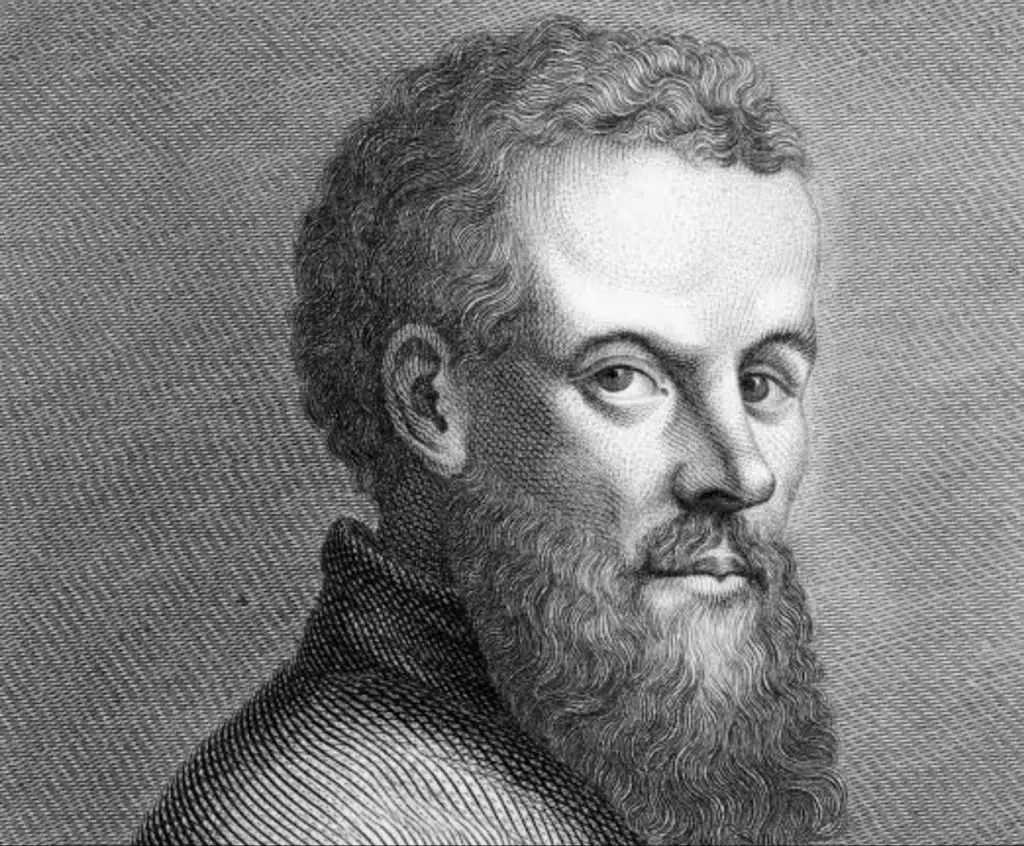
What makes Andrea Vesalius famous?
Andrea Vesalius was a Belgian anatomist born in 1514. He is famous for making several contributions to the field of human anatomy, including discovering that the lower jaw comprises only one jaw bone. This contradicted Galen’s assertions on the mandible.
Vesalius also authored one of the most influential texts on anatomy: De Humani Corporis Fabrica (On the Fabric of the Human Body). The book remained an essential resource for medical students for centuries after its publication.
Vesalius is also known for his only remaining skeletal work: The Basel Skeleton. It is believed to be modeled after the body of a felon, Jakob Karrer von Gebweiler. This preparation remains a valuable tool for studying human anatomy today.
[Source: Encyclopedia Britannica]
Similar Articles:
- 20+ Famous Astronomy Scientists That You Should Know
- 17 Famous Greek Scientists That You Should Know
- 30+ Famous Atheist Scientists That You Should Know
#35. William Harvey (1578-1657): The Father of Systemic Circulation of Blood

What makes William Harvey famous?
William Harvey is best known for his comprehensive description of blood flow from the heart. His work revolutionized anatomy and physiology.
Harvey was an English physician who studied at the University of Padua and later took up a medical practice. He was interested in the relationship between veins and arteries. This led him to investigate blood circulation.
After years of research, he concluded that blood did circulate in the body but not in one direction, as had previously been believed.
His book De Motu Cordis (Anatomical Account of the Circulation of the Heart and Blood) provided the first detailed information on systemic circulation.
[Source: Encyclopedia Britannica]
#34. Jean-Baptiste Lamarck (1744-1829): The French Scientist Who Pioneered The Field of Invertebrate Zoology

What makes Jean-Baptiste Lamarck famous?
There’s a lot of history to know when you’re talking about Jean-Baptiste Lamarck. He was a French naturalist and biologist born in England on August 1, 1744.
This scientist is best known for Lamarckism, his explanation of biological evolution. Lamarck was the first person to explain how animals could evolve through the inheritance of acquired characteristics.
This theory was later called Lamarckism. Lamarck believed that all life on earth evolved from one simple organism and that every species had an inherent tendency to evolve into the same species over time.
Lamarck was one of the earliest known experts on invertebrate zoology. He studied several different animals, from worms to insects to mollusks.
[Source: Encyclopedia Britannica]
#33. Richard Dawkins (1941-Present): The Atheist Whose Work Revolutionized Evolutionary Biology
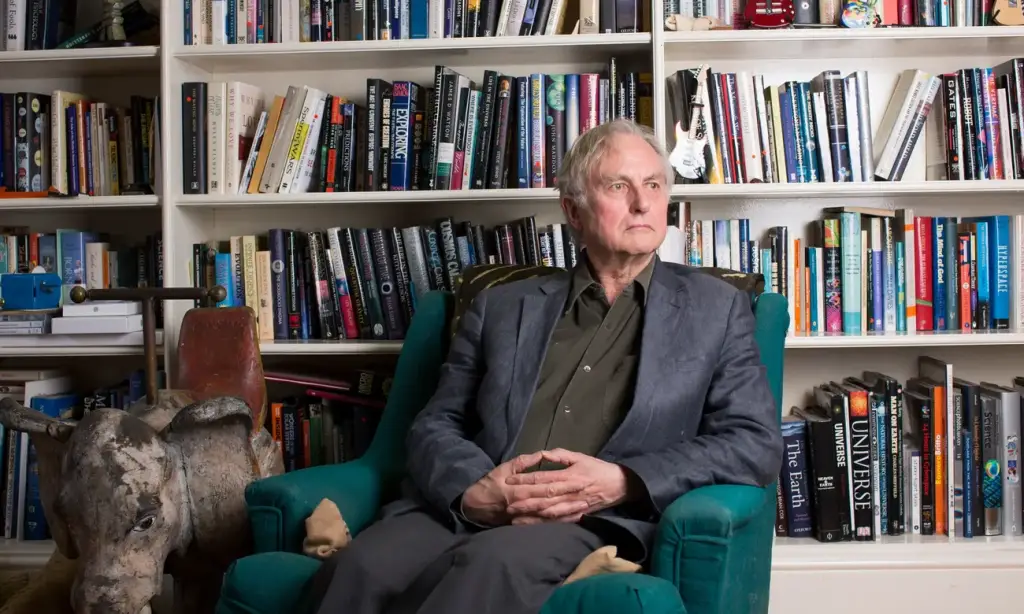
What makes Richard Dawkins famous?
Richard Dawkins was an English evolutionary biologist best known for developing the gene-centric approach to evolution. He popularized this concept through his book, The Self Gene.
His text, The Extended Phenotype, explores how natural selection works at different levels. He has also written several books for general audiences: The Blind Watchmaker, The God Delusion, and A Devil’s Chaplain.
Dawkins is a staunch atheist who often criticizes religion as “anti-science.” His outspokenness on this issue has made him controversial among many religious people who believe he is attacking their beliefs without good reason or evidence to back up his claims.
[Source: Encyclopedia Britannica]
Similar Articles:
- 16 Famous Scientists With Learning Disabilities That You Should Know
- 30 Famous Medical LaBraWithry Scientists That You Should Know
- 17 Famous Electrical Scientists That You Should Know
#32. Robert Hooke (1635-1703): The Leonardo Da Vinci of England

What makes Robert Hooke famous?
Robert Hooke was a true polymath. He is best known as one of the first people to observe microorganisms through a microscope. He was also a brilliant architect and engineer who designed some buildings in London during his lifetime—including St Paul’s Cathedral.
Hooke’s scientific work focused on many fields, including archaeology, astronomy, and biology. He made several important contributions to the development of modern science. Hooke is often considered one of the founders of microscopy due to his extensive studies of microscopic organisms.
Robert Hooke also came up with the term “cell” during his microscopic studies.
[Source: Encyclopedia Britannica]
#31. Rudolph Virchow (1821-1902): The Pope of Medicine
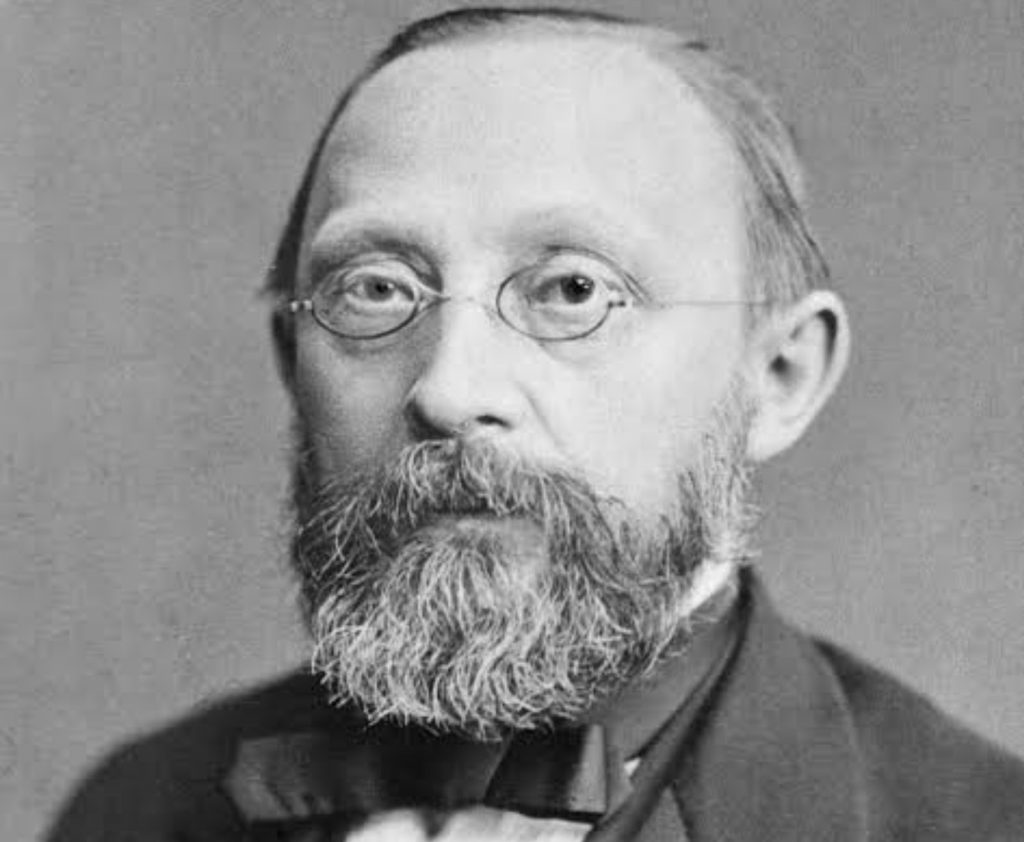
What makes Rudolph Virchow famous?
Rudolph Virchow was born in Germany on October 13, 1821. He was a physician widely considered to be the founder of modern pathology. His work pioneered public health in his home country of Germany.
Virchow’s main contribution to modern medicine was his work in public health and social medicine. He pioneered the use of autopsies for research purposes.
This German medical doctor published over 2000 scientific texts. One of them, Cellular Pathology, is widely regarded as the foundation of modern pathology.
Virchow was also known for his open criticism of Charles Darwin’s theories of evolution. He believed Darwin was wrong because the doctor never saw evidence that humans descended from apes or monkeys.
In addition to being a physician, Virchow also had a passion for politics. He was a member of parliament for many years before he died in 1902 at 80.
[Source: Encyclopedia Britannica]
#30. Alfred Russell Wallace (1823-1913): The Other Guy That Discovered Natural Selection

What makes Alfred Russell Wallace famous?
If you’re a fan of the natural sciences and have enjoyed Charles Darwin’s work, you’ve likely heard of Alfred Russell Wallace.
Born in Wales on January 8, 1823, Alfred Russel Wallace was one of the most influential figures in the history of biology. His work on evolution inspired Charles Darwin’s book On The Origin of Species.
Wallace is best known for being one of the first people to publish a scientific paper on the theory of evolution by natural selection. He independently conceived the idea in 1858 and sent a paper outlining his findings to Darwin that same year.
Wallace was fascinated with nature since he was young and spent much of his life exploring tropical regions of Southeast Asia. He collected specimens for museums in Europe and America.
While collecting specimens, he made many important observations about animal behavior. This helped him develop his theories about evolution by natural selection.
[Source: Encyclopedia Britannica]
Similar Articles:
- 17 Famous Earth Scientists That You Should Know
- 18 Famous Rocket Scientists That You Should Know
- 17 Famous Disabled Scientists That You Should Know
#29. Theodor Schwann (1810-1882): The Man Whose Discoveries Revolutionized Physiology

What makes Theodor Schwann famous?
If you’re asking this question, you’re in good company. Theodor Schwann is not a household name like Newton or Einstein, but he was important.
Theodor Schwann was a German biologist best known for extending cell theory to the study of animals. He also made several significant discoveries throughout his lifetime.
Although Schwan’s most famous work was on cell theory, his original work was on nerve function.
He changed everything we knew about molecular biology then by introducing the idea that all living things have cells that perform different functions within their bodies.
Schwann is also known for discovering pepsin. This enzyme is in the gastric juices. It breaks down proteins into smaller pieces so they can be digested more easily by stomach acids and enzymes.
[Source: Encyclopedia Britannica]
#28. Nettie Stevens (1861-1912): The Lady Who Discovered Sex Chromosomes
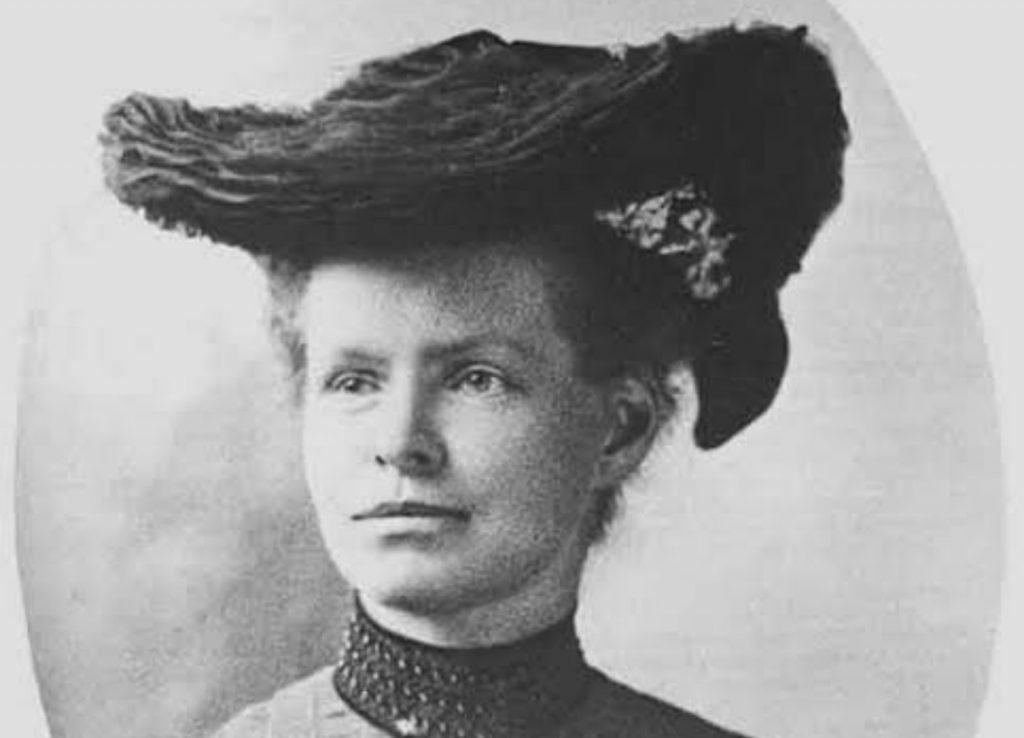
What makes Nettie Stevens famous?
Nettie Stevens was an American geneticist born in Vermont on July 7, 1861. She studied at Westford Academy in Massachusetts and Stanford University. After graduating, Stevens proceeded to Bryn Mawr College, earning her Ph.D.
Stevens is best known for discovering the X and Y chromosomes—the little guys that determine whether you’re a girl or a boy.
This discovery helped us understand how different parts of our bodies develop differently depending on gender. It’s also why we know more today about how genetics affects us.
[Source: Encyclopedia Britannica]
#27. Edward Jenner (1749-1823): The Father of Immunology
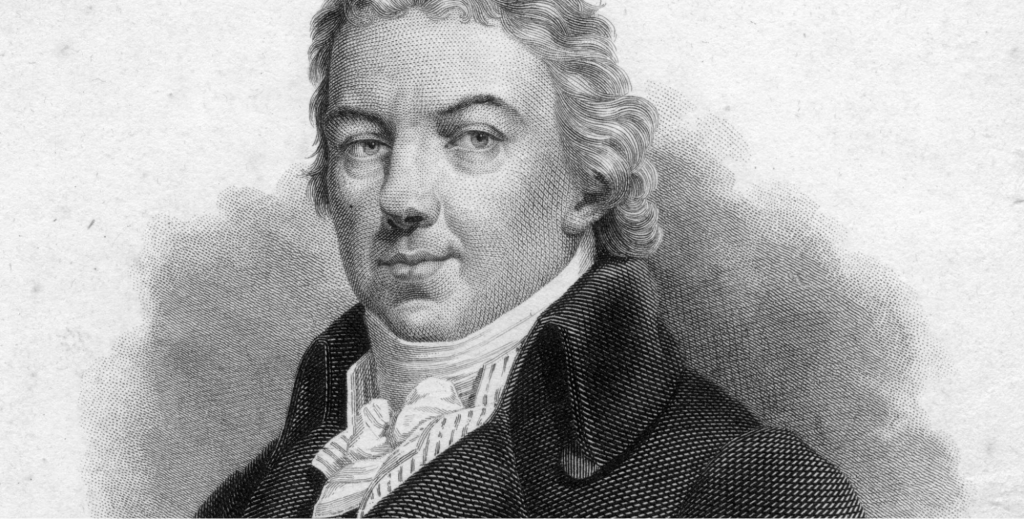
What makes Edward Jenner famous?
The origin of the word “vaccination” is actually a bit of a mystery. Some say it comes from the Latin word vacca, which means “cow.” This term was used by people who vaccinated their cows to protect them from disease.
Edward Jenner was a British biologist known for his contributions to this field. His work on the smallpox vaccine pioneered vaccination as an effective way to prevent disease. This led to widespread adoption across Europe and South America during his lifetime.
His work also paved the way for other developments in immunology, like vaccines against measles, diphtheria, tetanus, yellow fever, and influenza.
[Source: Encyclopedia Britannica]
Similar Articles:
- 18 Famous Swedish Scientists That You Should Know
- 15 Famous Taiwanese Scientists That You Should Know
- 16 Famous Sport Scientists That You Should Know
#26. Ernest Everett Just (1883-1941): A Pioneering African-American Biologist

What makes Ernest Everett Just famous?
Ernest Everett Just was an American biologist born in 1883 to Charles Jr. and Mary. He spent his early life in South Carolina.
Everett Just is best known for research that focused on experimental pathogenesis, fertilization, dehydration in active cells, effects of radiation on cells, hydration, and cell division.
Through his work, he established himself as an authority in biology and paved the way for future advances in the study of fertilization.
What’s the best Ernest Everett quote?
“We feel the beauty of nature because we are part of nature and because we know that however much in our separate domains we abstract from the unity of Nature, this unity remains. Although we may deal with particulars, we return finally to the whole pattern woven out of these. “
[Sources: Encyclopedia.com, Afric Network Channel]
#25. Robert Koch (1843-1910): The Father of Modern Bacteriology
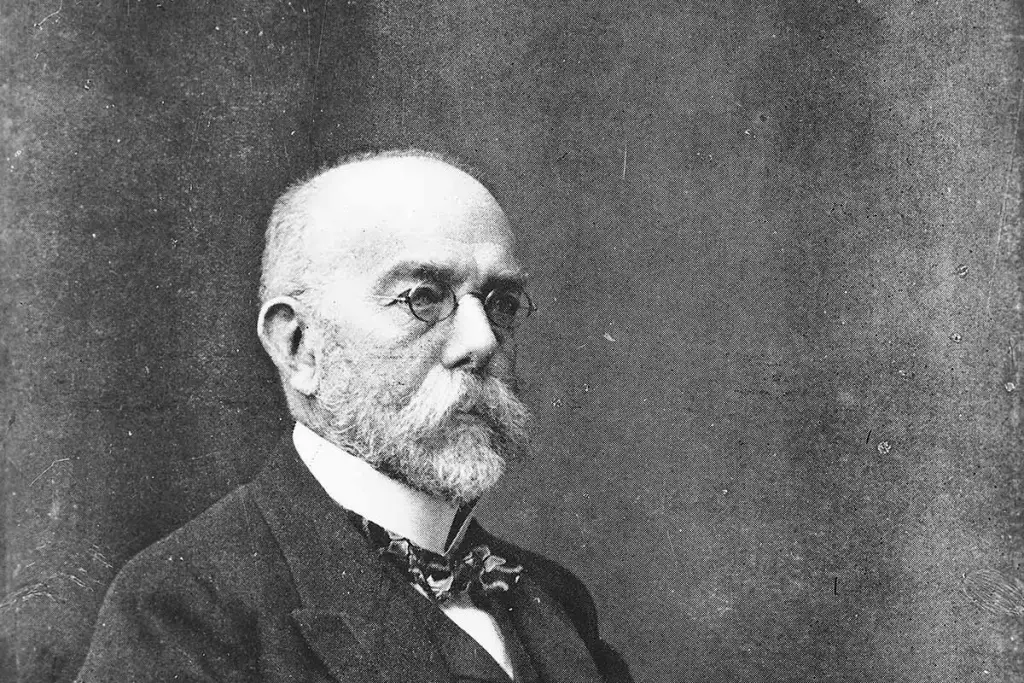
What makes Robert Koch famous?
One of the most prominent German physicians to ever live, Robert Koch, pioneered medical bacteriology. He earned the coveted Nobel Prize in Physiology or Medicine in 1905 for his contributions.
It was Koch’s work with anthrax that made him famous. He demonstrated that this disease is caused by a rod-shaped bacterium called Bacillus anthracis.
Koch also discovered the causative agent of tuberculosis: Mycobacterium tuberculosis. Finally, he proved that Vibrio cholerae bacteria causes cholera.
His discovery of these three diseases led him to develop his own method for growing bacteria in laboratory cultures. This technique enabled him to prove that germs cause many diseases.
[Source: The Nobel Prize]
#24. John Maynard Smith (1920-2004): The British Scientist Who Pioneered Population Genetics

What makes John Maynard Smith famous?
John Maynard Smith was a British geneticist and evolutionary biologist born on January 6, 1920. He studied aeronautical engineering and served in World War II.
After the war, he returned to school and earned a degree in biology under J.B.S. Haldane.
Maynard Smith is best known for his contributions to many biological concepts. His most notable achievements were in signaling theory and the evolution of sex.
He worked alongside other prominent figures in genetics, including George Robert Price (who developed the Price equation).
[Source: National Library of Medicine]
#23. Carolus Linnaeus (1707-1778): The Father of Taxonomy
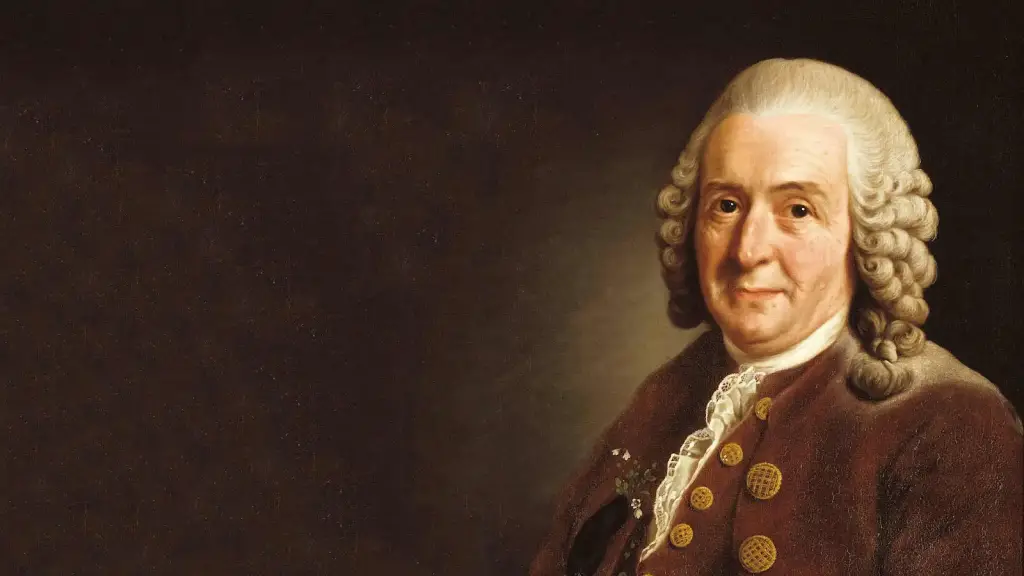
What makes Carolus Linnaeus famous?
Carolus Linnaeus was a Swedish scientist known for popularizing a new method of naming organisms called binomial nomenclature. This system proposed giving living organisms two-part names. His work pioneered modern taxonomy.
Linnaeus was born in Southern Sweden, where he studied before beginning his career at Uppsala University.
[Science: Encyclopedia Britannica]
#22. Louis Agassiz (1807-1873): One of The Founding Fathers of The Study of Fish

What makes Louis Agassiz famous?
Louis Agassiz was an American biologist born in Switzerland on May 28, 1807. He is best known for his work in ichthyology—studying and classifying fish.
Agassiz had strong observational skills, which helped him make groundbreaking discoveries in geology and zoology, among others. He also pioneered glaciology.
Louis Agassiz strongly opposed Darwin’s evolutionary theory. Instead, he supported creationism. This is evident in his writings, which have attracted criticism from non-bible scientists.
[Science: Encyclopedia Britannica]
#21. Theodosius Dobzhansky (1900-1975): One of The Central Figures in Genetics And Evolutionary Biology
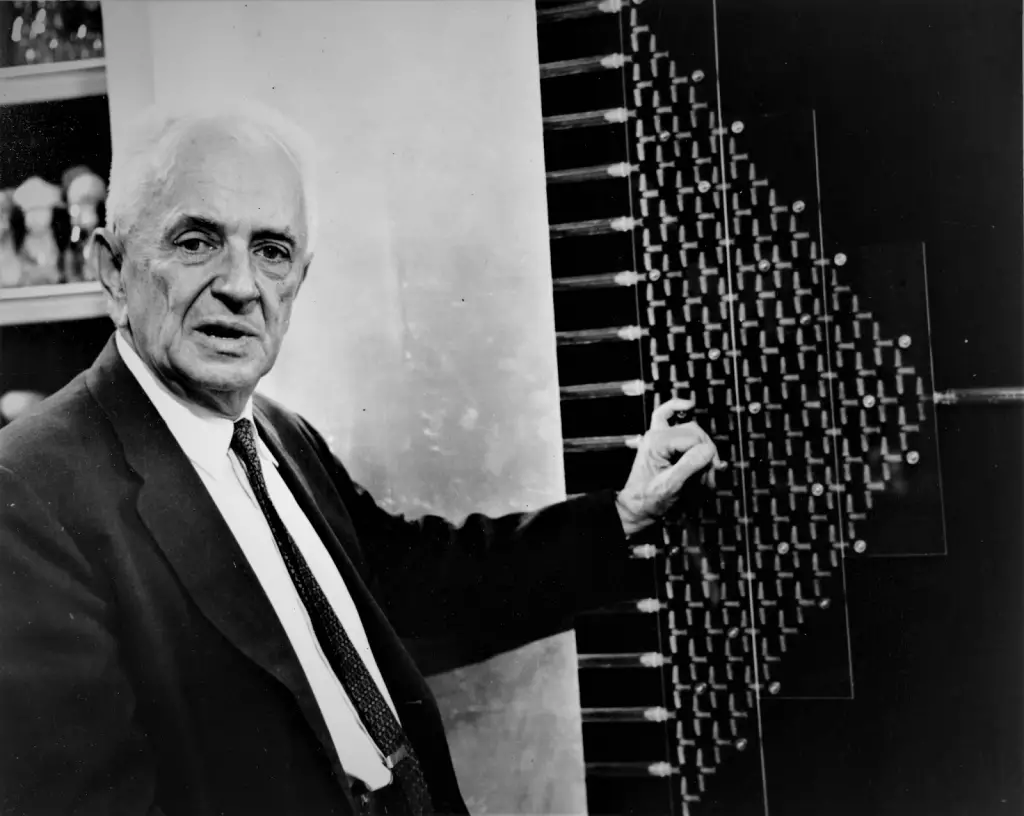
What makes Theodosius Dobzhansky famous?
If you want to talk about evolutionary biology and genetics, you’ll hear a lot about Theodosius Dobzhansky.
He was a Russian-born American evolutionary biologist and geneticist who studied entomology at Kyiv University in Ukraine. Do you know what else is in Ukraine? Chernobyl! Oh man, imagine getting your degree from a school just down the street from a nuclear disaster site. That would be so cool.
But anyway—Dobzhansky contributed greatly to modern synthesis, which involved harmonizing Charles Darwin’s ideas on evolution and Gregor Mendel’s heredity. He summarized his work in the book Genetics and the Origin of Species, which is still considered one of the most important texts on modern synthesis today.
For his work in biology, Dobzhansky received both the Franklin Medal and the United States National Medal of Science.
[Source: Encyclopedia Britannica]
#20. Thomas Henry Huxley (1825-1895): Darwin’s Bulldog

What makes Thomas Henry Huxley famous?
Thomas Henry Huxley was an English biologist whose fame came from popularizing Darwinism. He earned the nickname “Darwin’s bulldog” for defending Darwin’s theory of evolution by natural selection.
Huxley is best known for his expertise in comparative anatomy. His lifelong research focused on the anatomy and physiology of invertebrates.
[Source: Encyclopedia Britannica]
#19. Trofim Lysenko (1898-1976): The Scientist Who Believed Gregor Mendel Was Wrong
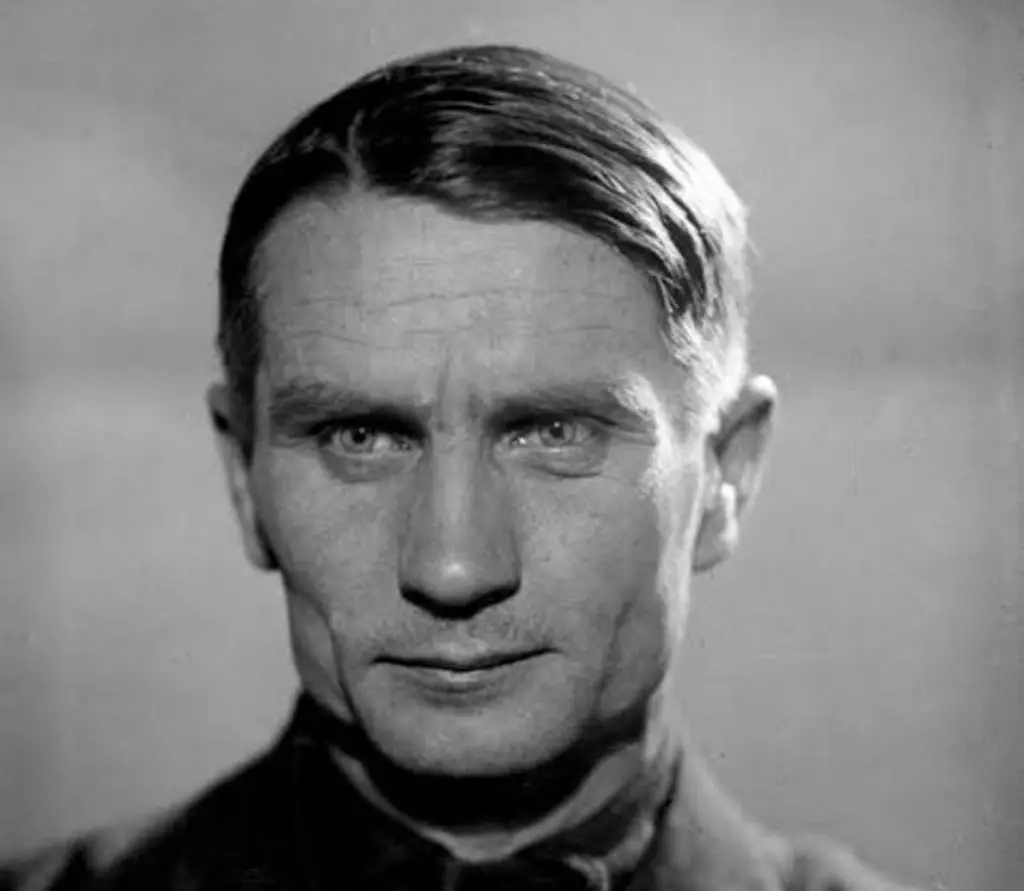
What makes Trofim Lysenko famous?
The Russian biologist, Trofim Lysenko, was born in 1898 and became an agronomist in the Russian Empire. He would eventually become the director of the Soviet Academy of Sciences.
Lysenko is known for his criticism of science-based agriculture and his advocacy of a Lamarckian inheritance, which favored behavior over genetics.
His work at the time focused on improving crop yields by changing plant genetics, but he believed it was impossible to change plant genetics through selective breeding. Lysenko argued that Mendelian genetics was irrelevant and that Lamarckian inheritance should take precedence.
[Source: The Atlantic ]
#18. Rosalind Franklin (1920-1958): Discovered The Double Helical DNA Structure
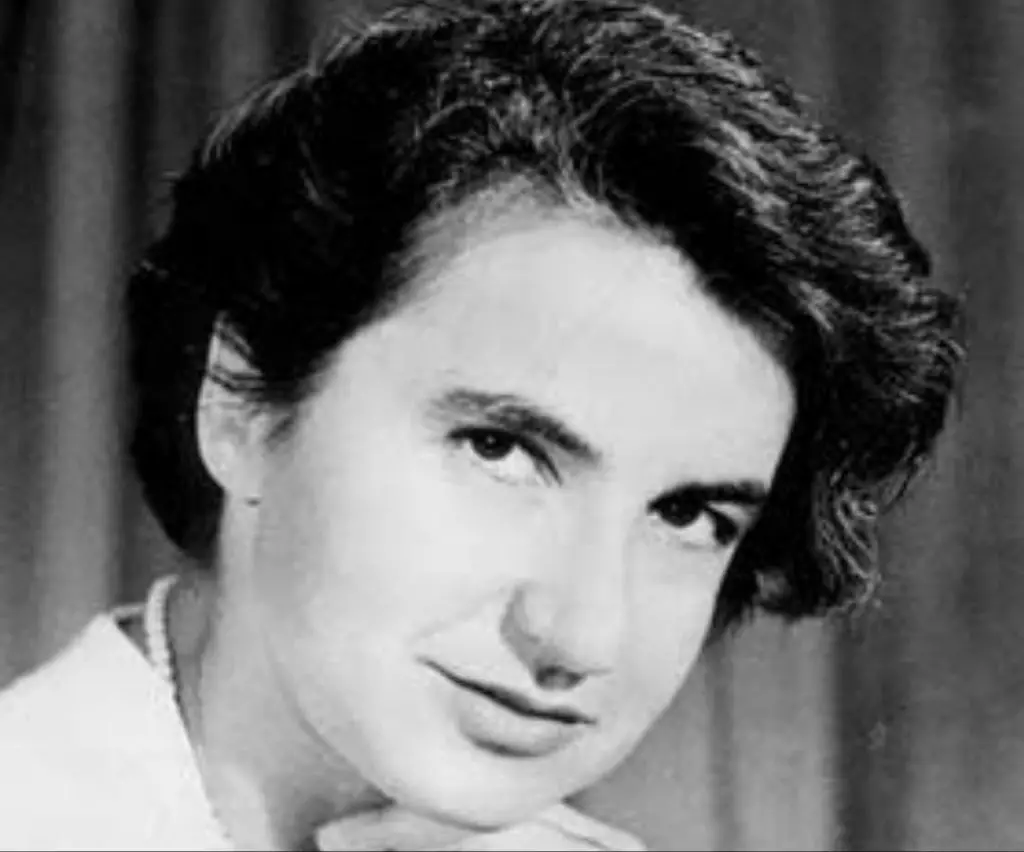
What makes Rosalind Franklin famous?
Rosalind Franklin was an English X-ray crystallographer and chemist best known for her work on the structure of DNA and viruses.
Franklin’s significant contribution to science came when she used X-rays to create a three-dimensional image of DNA. Using this technique, she discovered that DNA has a helical structure. This breakthrough led directly to James Watson and Francis Crick’s model of DNA.
Franklin died prematurely at age 37 due to ovarian cancer, likely caused by her exposure to radiation during her research.
Although Rosalind Franklin did not receive a Nobel Prize nomination, her work helped James Watson, Francis Crick, and Maurice Wilkins bag the award.
What’s the best Rosalind Franklin quote?
“Science, for me, gives a partial explanation for life. In so far as it goes, it is based on fact, experience and experiment.”
[Sources: Encyclopedia Britannica, Kings Medicine]
#17. J.B.S. Haldane (1892-1964): One of The Fathers of Medical Genetics
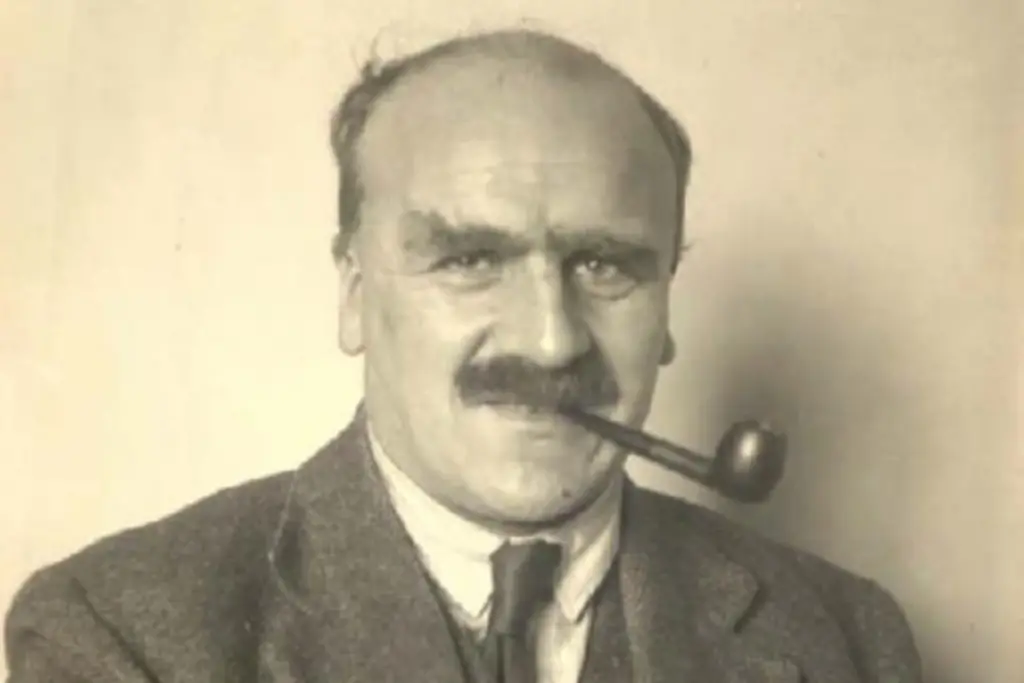
What makes J.B.S. Haldane famous?
John Burdon Sanderson Haldane was born in Oxford, England, on November 5, 1892, to a Scottish father and mother.
He began his career in Britain before moving to India to work for the government. Haldane is known for developing gene maps for color blindness and hemophilia on the X chromosome.
Besides pioneering in vitro fertilization, he was also one of the first people to suggest that sickle cell disease is responsible for some level of immunity against malaria.
Haldane also described gene linkage in mammals. He proposed that certain traits are inherited together. This is because they are expressed by genes that are located close together on chromosomes.
Haldane’s revolutionary work in genetics led him down a path toward a better understanding of evolution itself. He saw this quest as necessary to understand how humans fit into the world around them.
His research was also integral in developing new medical treatments that helped millions worldwide who today suffer from hereditary diseases like hemophilia or blood cancer.
What’s the best J.B.S. Haldane quote?
“This is my prediction for the future: whatever hasn’t happened will happen, and no one will be safe from it.”
[Source: Encyclopedia Britannica]
#16. Thomas Hunt Morgan (1866-1945): The Nobel Laureate & An Expert in Heredity

What makes Thomas Hunt Morgan famous?
Thomas Hunt Morgan was an American geneticist and evolutionary biologist best known for his work on the fruit fly. He laid the foundation of modern genetics.
Morgan was born in Kentucky, USA, on September 25, 1866, and studied at Johns Hopkins University, earning his P.h.D. His research focused on understanding the mechanisms of heredity as well as how genes are passed from one generation to another.
This finding led him to discover that chromosomes contain genes and that each chromosome carries only one kind of gene pair (a dominant and recessive gene).
Morgan also found that genes occur linearly along chromosomes and that they can be inherited together or independently. In 1933, Morgan received the Nobel Prize in Physiology or Medicine for his work on chromosomes and their function in heredity.
[Source: Encyclopedia Britannica]
#15. Hans Christian Gram (1853-1938): The Father of Gram Stain Technique
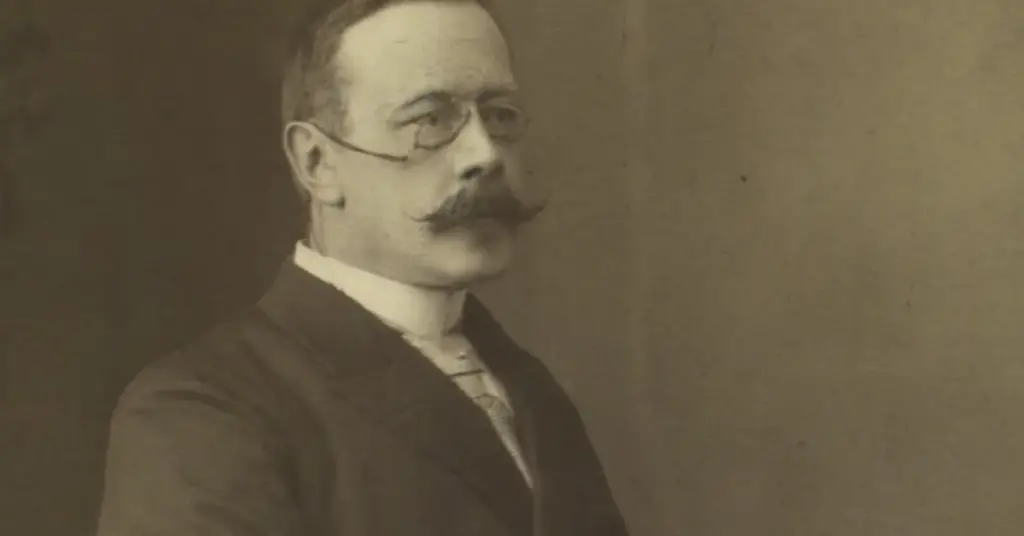
What makes Hans Christian Gram famous?
When you think of the history of microbiology, you probably picture a bunch of guys in lab coats and goggles. But did you know that a Danish bacteriologist named Hans Christian Gram made one of the most important discoveries in the field?
Gram was born in 1853 and is best known as the person behind the invention of gram stain in microbiology. His process was revolutionary because it allowed doctors to study bacteria more efficiently, ultimately leading to better patient treatment options.
The Gram stain is so essential that it’s still used today— even though it’s over 100 years old.
[Source: Encyclopedia Britannica]
#14. Barbara McClintock (1902-1992): The Person Who Discovered Transposition of Genetic Markers
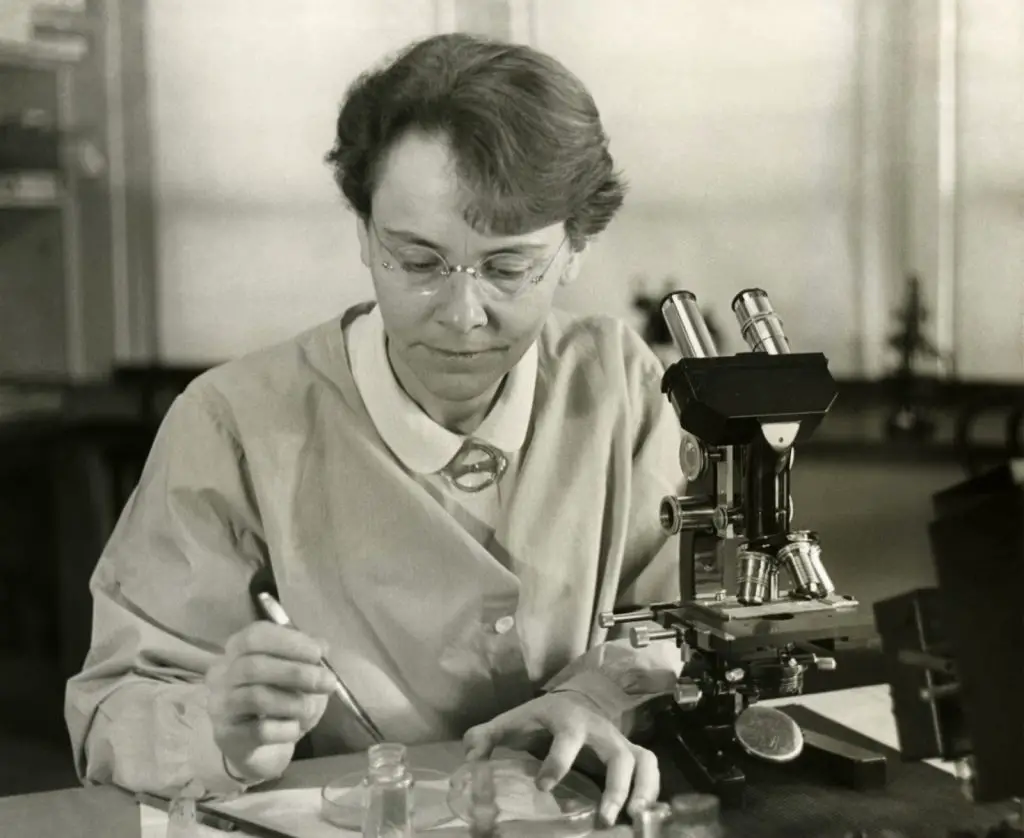
What makes Barbara McClintock famous?
Barbara McClintock was an American-born scientist who studied the genetics of corn plants and was the first to map their chromosomes.
McClintock is well-known for her discovery of the transposition of genetic markers, which she identified after noticing that genes in maize could be moved around on chromosomes. This discovery was revolutionary at the time because it helped the scientific community understand how cells functioned and made them realize that genes could move around during development.
Barbara McClintock was the recipient of the Nobel Prize in Physiology or Medicine (1983) and several other awards.
What’s the best Barbara McClintock quote?
“I never thought of stopping, and I just hated sleeping. I can’t imagine having a better life. “
[Sources: The Nobel Prize, Barbara McClintock]
#13. Rachel Carson (1907-1964): One of The Queens of Environmental Protection
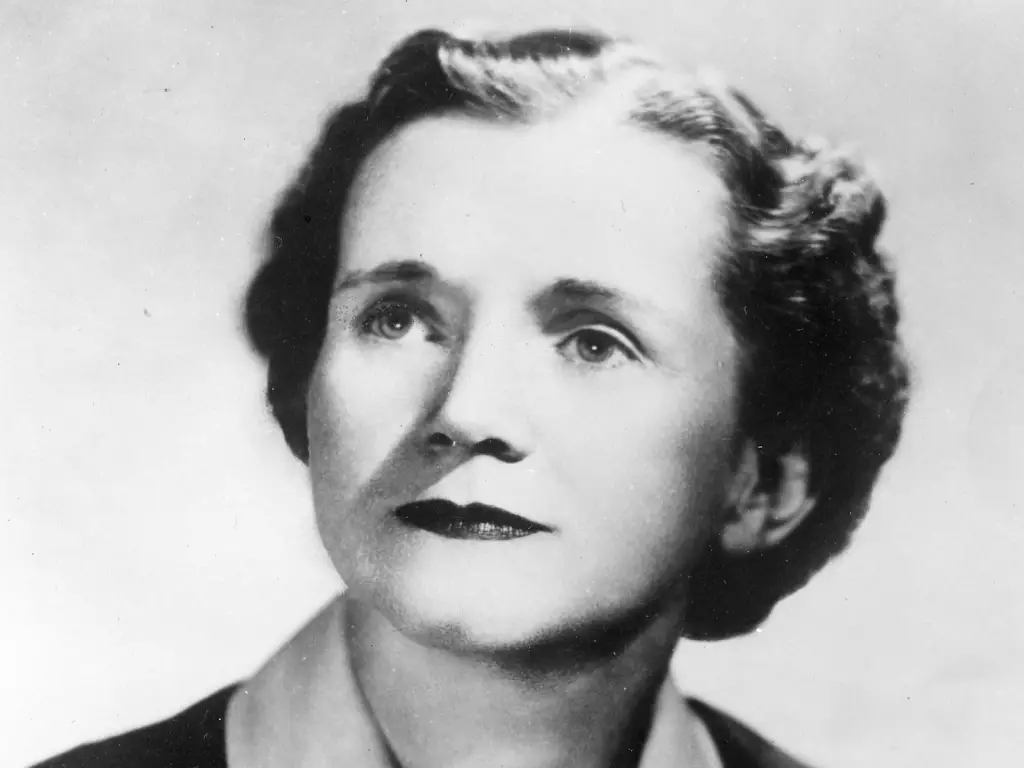
What makes Rachel Carson famous?
Rachel Carson is a name that has gone down in history as the person who raised awareness regarding the dangers of synthetic pesticides. She was born on May 27, 1907, in Springdale, Pennsylvania, and studied at Chatham University before attending John Hopkins University.
After graduating from college, she worked at the Bureau of Fisheries before becoming a writer. In 1962, she released her book, Silent Spring, which exposed the harmful effects of synthetic pesticides. This book also led to the ban on DDT—the most widely used pesticide in the world—in 1972.
Carson’s work resulted in the establishment of the US Agency for Environmental Protection, which aims to prevent pollution from entering water bodies and air pollution from entering land areas.
What’s the best Rachel Carson quote?
“One way to open your eyes is to ask yourself, ‘What if I had never seen this before?’ What if I knew I would never see it again?”
[Source: Rachel Carson]
#12. Francesco Redi (1626-1697): The Father of Experimental Biology
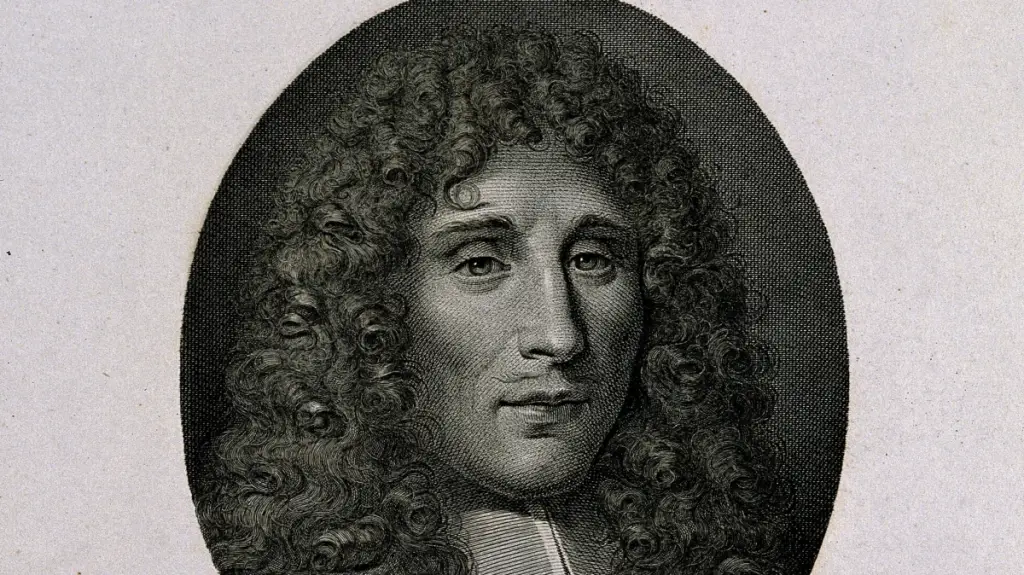
What makes Francesco Redi famous?
Francesco Redi was an Italian biologist, physician, and naturalist best known for opposing Aristotle’s ideas.
He was interested in how animals were formed and what caused them to die. Redi proved that maggots were not spontaneously generated from meat but came from eggs laid by flies deposited on the meat surface when flies landed or walked over it.
He did this by cutting open the belly sides of several dead frogs and placing them on Petri dishes with pieces of meat. As the father of parasitology, Redi described more than 100 parasites.
[Source: Encyclopedia Britannica]
#11. Oswald Avery (1877-1955): The Guy Who Shaped Our Understanding of DNA

What makes Oswald Avery famous?
It’s a common misconception that all great scientists are weird and antisocial, but that’s not entirely true. Many of the most well-known scientists have been rather friendly.
One example is Oswald Avery, a physician born in Canada on October 21, 1877. He studied at Columbia University and spent a good percentage of his career at The Rockefeller Hospital in New York City.
One of his most significant accomplishments was publishing a paper in 1944 that suggested DNA was the material that contained chromosomes and genes. This paper earned him nominations for the Nobel Prize many times, but did not win him the prestigious award.
[Source: Encyclopedia Britannica]
#10. Lynn Margulis (1938-2011): The Lady Who Challenged Darwinism

What makes Lynn Margulis famous?
Lynn Margulis, born in Chicago, was an evolutionary biologist who studied at the University of Wisconsin, then earned her Ph.D. from the University of California.
Her most notable contribution to science is her endosymbiotic theory. This theory states that mitochondria were originally free-living bacteria that engulfed other cells and became part of their genome. This resulted in mitochondria becoming organelles found in all living cells.
Margulis has also contributed to our understanding of cell structure and function by demonstrating how viruses can be used as tools for studying biology (for example, by infecting cells with viruses).
[Source: Encyclopedia Britannica]
#9. Gertrude Belle Elion (1918-1999): The Lady Who Revolutionized Drug Development

What makes Gertrude Belle Elion famous?
Gertrude Belle Elion was a truly remarkable woman. She was an American pharmacologist and biochemist who impacted the field of medicine.
Elion is known for her unique drug development method, which focuses on the user rather than trial and error. This technique opened doors for many other scientists to work with this technique.
Her work influenced the development of Zidovudine, one of the first antiretroviral drugs against AIDS. She also developed Aciclovir, which was an anti-herpes drug.
Elion received widespread recognition for her discoveries in drug development when she found a cure for childhood leukemia.
Her work earned her the Nobel Prize in Physiology or Medicine. She shared this award with James Balck and George H. Hitchings in 1988.
[Source: The Nobel Prize]
#8. Paul Ehrlich (1854-1915): The Discoverer of Syphilis Treatment
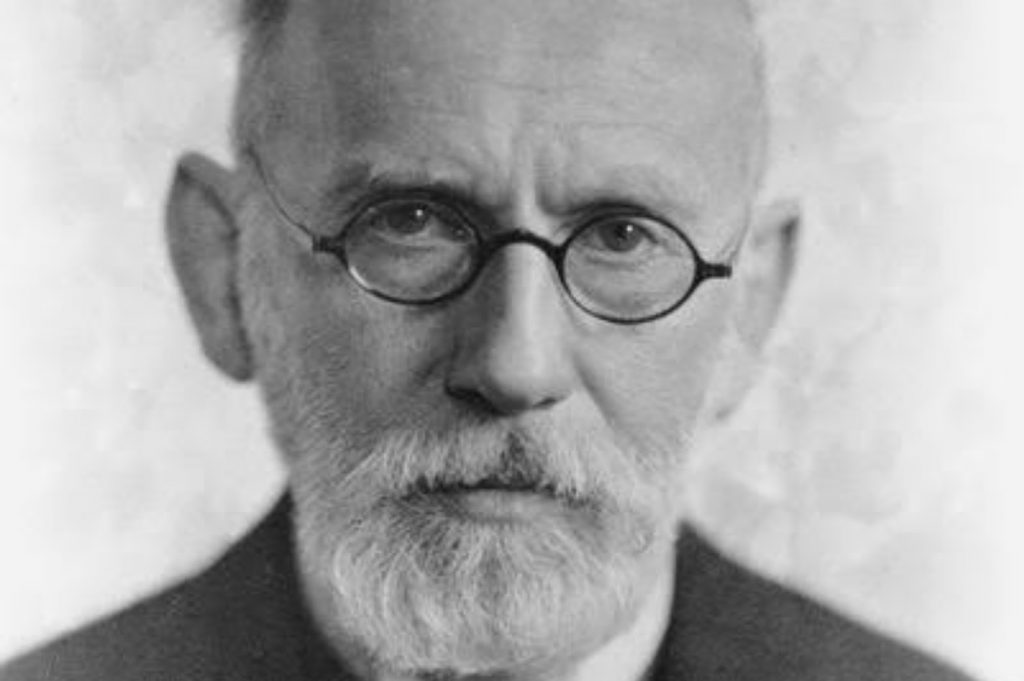
What makes Paul Ehrlich famous?
Paul Ehrlich was a German physician. He is notable for his research on antimicrobial chemotherapy, immunology, and hematology.
In 1909, Ehrlich discovered that treating syphilis with arsphenamine could cure it. This treatment was so effective that even when patients went untreated for years, they would still be cured if they received treatment after being treated for syphilis.
He also made major contributions to staining techniques, making it possible for medical scientists to diagnose diseases like cancer and leukemia more accurately than ever before.
As part of his work, Ehrlich formed and popularized his concept of a magic bullet. He believed medical doctors could kill the disease-causing microbes without harming the patient’s body.
Paul Ehrlich received the Nobel Prize in Physiology or Medicine in 1908 for his research, which has taken medicine to the next level in treating and diagnosing diseases.
[Source: The Nobel Prize ]
#7. Francis Crick (1916-2004): The Co-Discoverer of DNA Structure

What makes Francis Crick famous?
Francis Crick (molecular biologist) is known as one of the individuals who discovered the exact structure of DNA, along with James Dewey Watson.
While employed at the University of Cambridge, the pair became friends. In 1962, they were the recipients of the Nobel Prize for their contributions to science.
Despite his beliefs about the origin of the universe, Francis Crick remains one of the world’s best scientists of all time.
What’s the best Francis Crick quote?
“Chance is the only source of true novelty.”
[Source: Encyclopedia Britannica]
#6. Ronald Fisher (1890-1962): The Greatest of Darwin’s Successors

What makes Ronald Fisher famous?
In the early 1900s, Charles Darwin was still a hot topic. His theory of evolution was a huge success, but he was no longer around to defend it. Who would carry on his work?
That’s when American geneticist and statistician Ronald Fisher came along. Born in London, England, on February 17, 1890, Fisher studied at the University of Cambridge and became one of the most famous scientists in history.
Fisher revised Charles Darwin’s evolution theory with his “Fisherian” model of natural selection that considered genetics and statistics.
He also supported eugenics. This is the idea that genetically superior people should be encouraged to reproduce more often than those who are not. It may seem odd for a scientist to advocate in this day and age, but it wasn’t back then.
What’s the best Ronald Fisher quote?
“The more highly adapted an organism becomes, the less adaptable it is to any change.”
[Source: Encyclopedia Britannica]
#5. Louis Pasteur (1822-1895): The Father of Microbiology Who Saved Millions of Lives

What makes Louis Pasteur famous?
Louis Pasteur was a French microbiologist and chemist best known for his work on microbial fermentation, pasteurization, and vaccination.
Pasteur’s most notable achievement was developing principles of microbial fermentation, which still help in disease prevention. He also created a vaccine for rabies that has saved millions of lives worldwide.
Pasteur also disproved Aristotle’s theory of spontaneous generation by showing that germs were responsible for disease rather than the idea that germs could arise from non-living matter.
What’s the best Louis Pasteur quote?
“Science knows no country, because knowledge belongs to humanity, and is the torch which illuminates the world.”
[Source: Encyclopedia Britannica]
#4. Gregor Mendel (1822-1884): The Father of Genetics

What makes Gregor Mendel famous?
Gregor Mendel, an Austrian botanist, is best known for his work on plant genetics. He discovered the fundamental principles of heredity and contributed to evolutionary biology and genetics.
Mendel was a Christian Science practitioner. In fact, it was his faith that inspired him to study plants.
[Source: Encyclopedia Britannica]
#3. Joseph Lister (1827-1912): Father of Modern Surgery
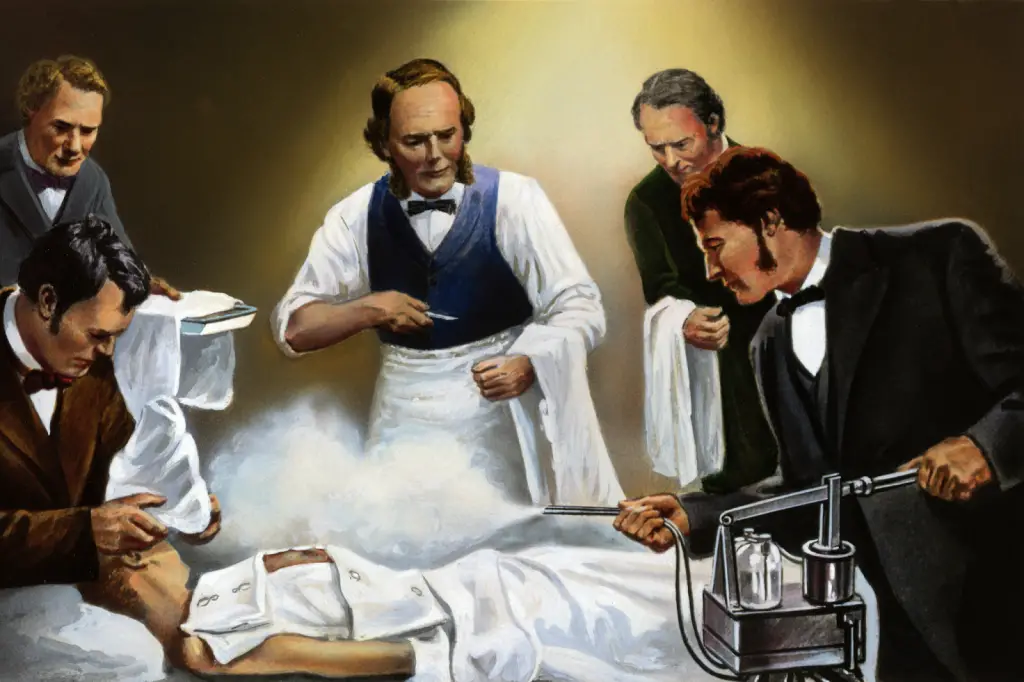
What makes Joseph Lister famous?
Joseph Lister wasn’t just a great surgeon—he was also a member of the Christian Science church.
Born in 1827, Lister grew up in West Ham, a small town east of London. He went on to become one of Britain’s most celebrated surgeons, with a lasting legacy that includes his work on sterilizing surgical equipment and his invention of the antiseptic paste known as carbolic acid (which is still used today as phenol).
Lister’s greatest legacy, however, may be his contribution to the field of surgery. He was the first medical scientist to use germ theory during surgery. In other words: he discovered how germs cause disease and used this knowledge to help prevent it.
[Source: National Library of Medicine]
#2. Karl Landsteiner (1868-1943): The Father of Blood Transfusion

What makes Karl Landsteiner famous?
The Austrian-born physician is best known for discovering the polio virus alongside Erwin Popper. This has saved millions of lives globally.
Landsteiner also worked with Alexander S. Wiener on the rhesus factor, which helps determine whether or not someone’s blood type can be used for transfusions. This was another important discovery that saved countless lives.
Thanks to Karl Landsteiner’s research on agglutinins, medical scientists can now classify blood into different groups. He received the Nobel Prize in Physiology or Medicine in 1930 for his contributions to biology and medicine.
[Source: The Nobel Prize]
#1. James D. Watson ( 1928-Present): Father of DNA Research
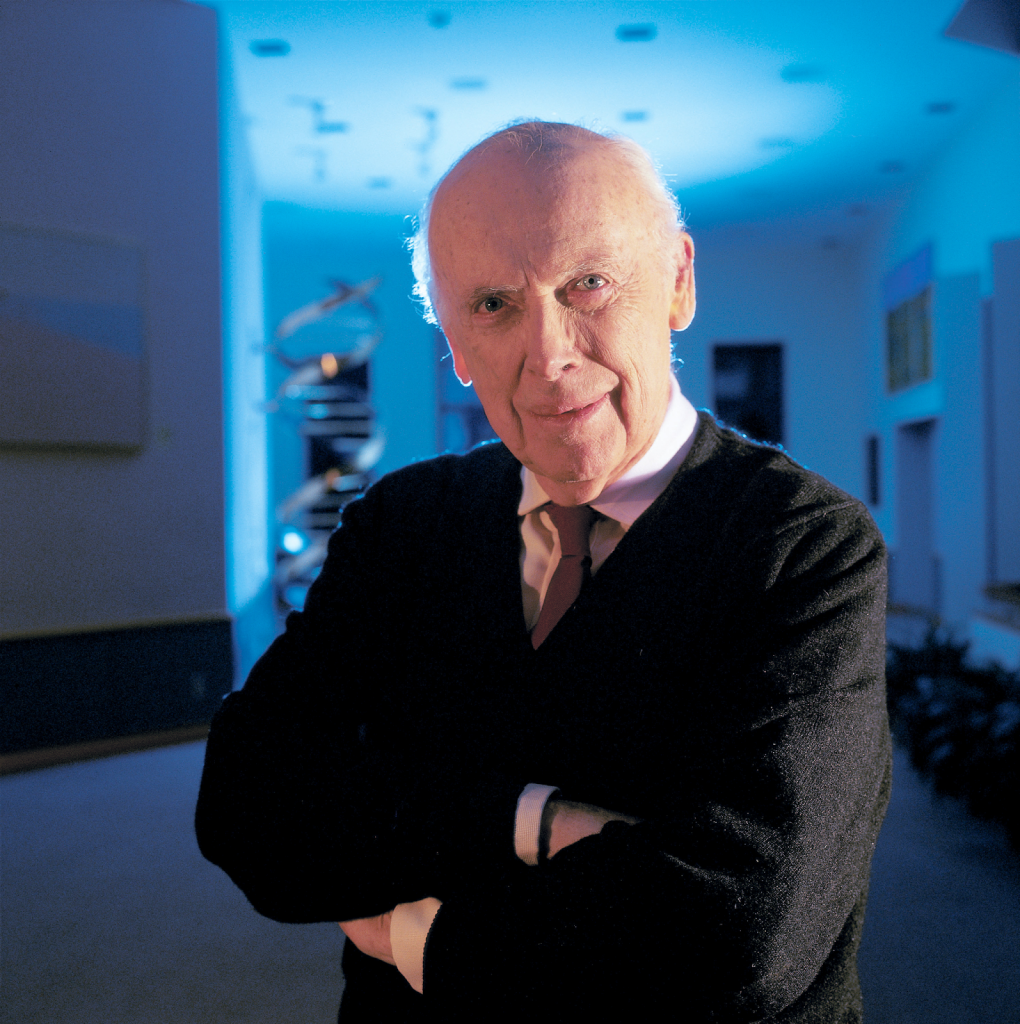
What makes James D. Watson famous?
James D. Watson, “the father of DNA research”, was born in 1928 in Chicago. He went to the University of Chicago for his undergraduate degree in genetics before moving to Indiana to complete his doctorate.
Watson is best known for his work with Francis Crick and Maurice Wilkins on the structure of DNA. He proposed that DNA is a double helix, consisting of molecules wrapped around each other like a ladder.
This was the first time anyone had suggested such a structure for DNA. This study contributed to our understanding of how genes are passed on from generation to generation.
Watson shared a Nobel Prize with Maurice Wilkins and Francis Crick for their contributions to understanding Nucleic acids.
What’s the best James D. Watson quote?
“Today, the theory of evolution is an accepted fact for everyone but a fundamentalist minority, whose objections are based not on reasoning but on doctrinaire adherence to religious principles.”
[Source: The Nobel Prize]
Final Thoughts
What is it about famous biologists that make their stories so fascinating? Biologists tend to go where most people fear to tread. They spend their lives working in the service of advancing human knowledge.
There are certain individuals in this profession whose names have become synonymous with discoveries made during their lifetimes.
Many of today’s top biologists chose to study science at an early age. They went on to earn doctorates and other degrees before making their mark in the realm of academia and research.
Who else would you love to see on this list? Let us know in the comment section below.

